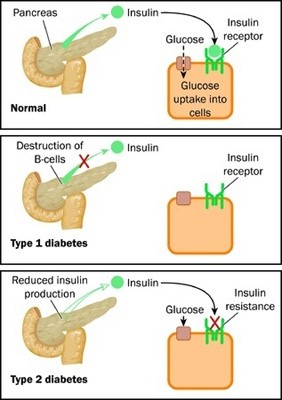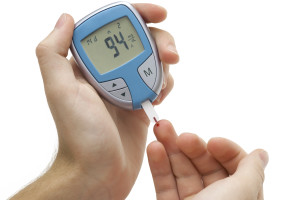- CALL US:
- 713-661-9995
Diabetes: An Introduction to the 7th leading cause of death in the United States

 From 1980 to 2012 the number of persons diagnosed with diabetes has more than tripled from 5.6 million to 21.9 million and increasing rapidly every year. As a result of our American Diet and sedentary lifestyle, diabetes has become the 7th leading cause of death in the United States of America.
From 1980 to 2012 the number of persons diagnosed with diabetes has more than tripled from 5.6 million to 21.9 million and increasing rapidly every year. As a result of our American Diet and sedentary lifestyle, diabetes has become the 7th leading cause of death in the United States of America.
Diabetes is a disease that impacts the regulation of glucose and insulin levels in the body. Glucose is a simple sugar that provides the body with its primary source of energy that comes from carbohydrate foods.
Normal fasting blood glucose or sugar levels are typically 100 milligrams (mg) per deciliter (dl). Once food is ingested, it is broken down and absorbed into the bloodstream and within 1 to 2 hours after eating, normal blood glucose levels are typically less than 140 mg/dl.
An individual with diabetes is inefficiently managing the use of glucose and insulin in the body; therefore fasting blood glucose levels are typically higher than 126 mg/dl and higher than 200mg/dl on a random check. Another blood test that is used in diagnosing diabetes is the Hemoglobin A1C levels. This is a blood test that estimates an individual’s average blood sugar levels from the past 2-3 months. According to the American Diabetes Association, a normal reading for a nondiabetic is below 5.7. Levels of 5.7 to 6.4 are considered to be prediabetic and above 6.5 are type 2 diabetics.
Diabetes Can Be Prevented
Diabetes takes a gradual approach to developing and can be prevented. This is the most common disorder of the endocrine system. About 79 million people over the age of 20 in the U.S. are diagnosed as prediabetics. Prediabetes is also known as impaired glucose tolerance and typically individuals with this disorder are asymptomatic. Once an individual develops diabetes, symptoms that may occur include: unusual thirst, frequent urination, blurred vision, fatigue, slow-healing cuts and/or sores, dry skin, yeast infections, weight gain, numbness in the hands and feet, erectile dysfunction and/or no symptoms at all.
Consistently high glucose levels can lead to many other health problems and/or complications such as: sleep apnea, heart disease, stroke, dyslipidemia, hypertension, hepatitis B, blindness and eye problems, kidney disease, amputation and many others. As mentioned earlier, diabetics have an issue managing insulin and glucose. Insulin is the hormone that is produced in the pancreas to help glucose enter the cells from the bloodstream to be used for energy. One of the main causes of Type 2 Diabetes is insulin-resistance, in which the body is resistant to the glucose lowering effects of insulin. If an individual does not produce insulin (type1) or resistant to insulin (type 2), blood sugar levels stay high and the result is diabetes.
Below is a picture to explain this process:
Type 2 diabetes is much more prevalent than Type 1. Individuals with type 2 diabetes produce insulin, but their bodies do not use it efficiently.
Diabetes Management
Lifestyle choices play a key role in this disease; hence it can be prevented and managed with the guidance of lifestyle modifications with controlling weight, diet and exercise. Most if not all patients with diabetes are on 1 or more prescription medications to manage this disorder. With proper guidance by a certified health coach and care by a physician, medications can be either decreased or eliminated over time.
Managing diabetes can be a struggle with a lot of patients due to either lack of knowledge and/or motivation. These modifications may be made by a certified health coach that can develop a customized care plan for an individual based on a personal health assessment that includes goals and plan of action.
The information in the coaching sessions may include: checking blood sugar levels and A1C, education on how to read a food label, healthy eating habits, managing blood sugar, physical activity plan, stress management, motivational techniques and most importantly having a partner to go along the journey of transforming your life every step of the way.
Questions about diabetes or prediabetes? Let the MyVita Wellness health coaches answer your questions. Contact us today.
